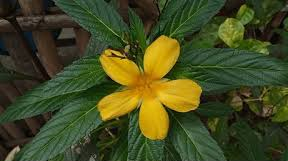Kashmir, often referred to as "Paradise on Earth," is as much a feast for the taste buds as it is for the eyes. The region's unique climate, nestled in the lap of the Himalayas, provides the perfect conditions for cultivating a diverse array of fruits. These fruits are not just an essential part of Kashmir's economy but also deeply interwoven with its culture, traditions, and daily life.
A Land of Abundance
Kashmir’s fertile soil and favorable climate make it one of the most significant fruit-growing regions in Jammu and Kashmir. The valley boasts a wide variety of fruits, ranging from temperate ones like apples and cherries to dry fruits such as walnuts and almonds. Each fruit tells a story of the region’s rich heritage and its bond with nature.
Key Fruit Varieties of Kashmir
1. Apples – The Crown Jewel
Apples are synonymous with Kashmir. Known for their unparalleled flavor, crispness, and variety, Kashmiri apples like Red Delicious, Golden Delicious, and Ambri are globally acclaimed. The annual apple harvest is a festival in itself, drawing traders and visitors from across the country.
2. Cherries – Little Rubies of the Valley
Kashmir produces some of the finest cherries in India. The bright red and dark black cherries, known locally as Mishri and Makhmali, are prized for their sweetness and juiciness.
3. Walnuts – Nature’s Treasure
Walnut trees are a common sight in the valley. Kashmiri walnuts are famous for their high quality and are exported worldwide. They are a significant part of the local diet and economy.
4. Almonds – Soft and Nutty
Kashmiri almonds, Hazelnut & Picans especially the soft-shelled variety, are a favorite for their rich flavor and health benefits. They hold cultural significance and are often gifted during festivals and weddings.
5. Apricots – A Golden Delight
Grown mainly in the Ladakh region, apricots are consumed fresh or dried. They are a sweet reminder of Kashmir's diverse agricultural palette.
6. Pears, Plums, Gojiberries, Sea buckhthorn and Peaches
These juicy fruits thrive in the valley’s cool climate, providing a refreshing treat during summer. Each has its own unique flavor profile and is a staple in local markets.
7. Mulberries and Grapes
Though less cultivated, mulberries and grapes add to the diversity of Kashmir's fruit basket. Mulberries are often dried and used in traditional dishes, while grapes are cherished fresh.
Cultural and Economic Significance
Fruits are more than just produce in Kashmir; they are a lifeline for thousands of families. From traditional recipes like apple chutneys and walnut cakes to the export of dry fruits and fresh produce, fruit cultivation is a cornerstone of the valley's economy. Seasonal fruit harvests are celebrated with fairs and festivals, showcasing the community's pride in their heritage.
Sustainability and Challenges
Despite its abundant natural resources, Kashmir's fruit industry faces challenges such as unpredictable weather, transportation issues, and limited access to global markets. However, initiatives promoting organic farming and better storage facilities are paving the way for sustainable growth.
A Taste of Kashmir
Exploring Kashmir's fruit heritage is an invitation to experience the valley’s essence. Whether it's biting into a crisp apple, savoring a handful of cherries, or enjoying a warm walnut-studded dessert, the fruits of Kashmir are a sensory delight that speaks of the region's unparalleled beauty and bounty.
Conclusion
The diversity of Kashmir's fruit heritage is a testament to its harmonious relationship with nature. Every orchard and fruit tells a story of resilience, tradition, and abundance. As we celebrate this natural wealth, we also recognize the importance of preserving this heritage for future generations. Kashmir’s fruits are not just gifts of nature—they are symbols of the region's rich cultural tapestry.
Availability : Varaties of kiwi plant
Other planting material also available : Apple tree, Apricort tree ,Goji berry tree, Ginkgo biloba tree , Almond tree, Peach tree, Chestnut, Pecan, Pear tree, Amlok tree, Howthorne tree,Hazel tree, Zaitoon tree , Walnut seed and medicinal and herbal plants.etc.
Write us at : jkmpic@gmail.com, jkmpic@bsnl.in
WhatsApp: 9858986794
Ph: 01933-223705
POB 40 GPO Srinagar SGR Jammu and Kashmir 190001
Home : https://jkmpic.blogspot.com
Kashmir Fruit Trees,
Kashmir Apple Orchards,
Kashmir Horticulture,
Kashmir Fruit Varieties,
Kashmir Apple Harvest,
Kashmir Fruit Farming,
Kashmir Walnut Trees,
Kashmir Cherry Varieties,
Kashmir Apricot Trees,
Kashmir Almond Orchards,
Kashmir Pears,
Kashmir Grapes,
Kashmir Peach Trees,
Kashmir Plum Varieties,
Kashmir Mulberry Trees,
Kashmir Organic Fruit Farming,
Fruit Orchards in Kashmir,
Kashmir Temperate Fruits,
Kashmir Dry Fruits,
Kashmir Seasonal Fruits,
Kashmir Agriculture and Fruit Trees,
Kashmir Fruit Blossom,
Srinagar Apple Cultivation,
traditional kashmiri fruits,





